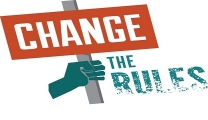What is anonymous recruitment?

Do hiring managers really need to know how old a job applicant is, or if she has kids? What about where the candidate was born or what he looks like? Excluding personal information that isn’t related to an applicant’s qualifications or experience, anonymous job applications are one way that helps employers to choose the best person for the job. Though the characteristics left out vary in different settings, these would commonly include the applicant’s name, contact details, picture, gender, age, birth place, nationality, marital status, and number of children.
Briefly speaking, the anonymous recruitment means that whether you will be invited for an interview relies only on your qualifications, but not your looks, gender, age or background. The key to this process is to make all candidates anonymous until the last stage of hiring process.
How to conduct anonymous recruitment?

You can conduct the blind recruitment process following these 4 steps:
1. An online application form that no name is given. Instead, the applicants pick the anonymous handle, and provide a list of their best skills and why they think they are suited to the job. If the employers need two versions of the applicant’s resume (one anonymous, one conventional), they can do as follows: Employers that have online applications or use a particular type of software can hide some information – for example, name, age or gender – during the initial screening stage. If employers use traditional paper or email applications, they can simply instruct the applicants to submit two versions of their resumes, or to place their personal information on the last page.
2. An initial interview done anonymously through online chat without talk of job history or personal particulars.
3. A skill evaluation again done online and anonymously.
4. An in-person interview that is obviously not anonymous.
Job application disclosure practices in the world

Job application disclosure practices vary considerably across labor markets. Though European and North American countries perform pretty well regarding general anti-discrimination policies and legislation, this doesn’t guarantee equality in all aspects of life. The kind of information that may be legally requested in job applications differs widely. While explicitly reserving a job for a person of a certain gender or race has been illegal in the U.S since the 1960s, asking for detailed personal information is standard in lots of Asian countries. For instance, Chinese job ads are often segregated by gender, and South Korean application forms can comprise questions on personal matters like smoking and drinking habits, blood type, height and weight, and financial status. In European countries, the amount of information requested falls between two poles. Though European employers wouldn’t actively ask about such characteristics as marital status, number of children, candidates sometimes volunteer such information. And information about gender and migrant status – 2 characteristics central to any debate about hiring discrimination can often be deduced from the applicant’s name.
You may also be interested in:
Gender discrimination in recruiting: Do you know it?
Is anonymous recruitment really worth it?
The use of anonymous recruitment to combat hiring discrimination is rising in popularity. Results from numerous field experiments reveal that personal information – for example, a name, can trigger the subconscious biases about ethnic origin, gender, immigrant status, etc., and prevent employers from objectively seeing the rest of what is in the application.

|
Anonymous hiring |
|
|
Pros |
Cons |
|
Anonymous job applications can avert discrimination from the initial stage of hiring. |
Anonymous job applications have the potential to decrease discrimination only when discrimination is high. |
|
They may increase job offer rates for minority candidates. |
|
|
They signal a strong commitment of employer to focus solely on qualifications and skills. |
|
|
Standardized forms of anonymous job applications are an efficient implementation method. |
Suboptimal implementation of anonymous recruitment can be costly. |
|
The use of anonymous job applications helps increase job applicant comparability. |
|
Tips for successful anonymised hiring
1. The anonymous recruitment can be practically implemented though, they also show that the implementation method is crucial. Avoid suboptimal implementation that can be connected with significant costs. Instead, standardized application forms completed by the applicants appear as most effective and efficient way to make the applications anonymous.
2. Anonymous hiring can help decrease discrimination – if the discrimination exists beforehand. The anonymous recruitment can have no effects if no discrimination is present initially, and it can even hinder the employer from applying measures like affirmative actions, at least in the first stage of hiring process.
3. The full potential of anonymous recruitment can be realized only if there are no broad structural differences in qualifications or skills between applicant groups. For example, unequal education opportunities can induce different callback rates for the minority candidates even if employers have no direct information about the applicants’ minority group status.
4. Anonymous recruitment could make sense in a particular sector or in a certain job, whilst it may not be appropriate in another.











Replies to This Discussion